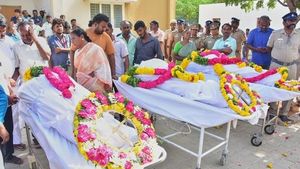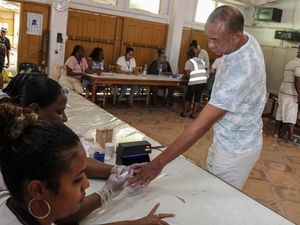As Sudan’s devastating civil war enters its third year, the United Nations Security Council has unanimously renewed its arms embargo on the country’s western region of Darfur, extending a ban on the supply of weapons, ammunition, and military equipment for another year. The September 12, 2025, decision also renews targeted sanctions—travel bans and asset freezes—against individuals accused of fueling atrocities in Darfur. Yet, as international bodies call for peace and accountability, a parallel crisis is unfolding: the near-total collapse of Sudan’s independent media, leaving millions of Sudanese in an information blackout just when reliable news is most desperately needed.
The Security Council’s move comes amid a catastrophic civil war that has left millions displaced, cities besieged, and a humanitarian crisis deepening by the day. According to the UN, both the Sudanese Armed Forces (SAF) and the rival Rapid Support Forces (RSF) have committed extensive war crimes, with the RSF accused of crimes against humanity during its siege of El-Fasher in Darfur. The Council’s resolution, however, was not without contention. While all members agreed to renew the Darfur embargo, Russia and others “categorically rejected” proposals to expand sanctions to other regions of Sudan, insisting instead on “constructive cooperation” with the Sudanese government.
Implementation of the embargo and sanctions, though, faces major hurdles. The Panel of Experts established under the original 2005 UNSC Resolution 1591—charged with monitoring violations—has yet to be reconstituted, a delay that has left objective reporting on embargo breaches in limbo. Without robust, independent reporting, the Council’s actions risk remaining “just pieces of paper without the political will to implement them,” as civil society expert Shayna Lewis told the Security Council in June.
Meanwhile, the human toll continues to mount. In August, Ikhlass Ahmed of the Darfur Advocacy Group told the Council that “12 million people, primarily women and girls, are at risk of gender-based violence in Sudan.” The Independent Fact-Finding Mission for Sudan, authorized by the UN Human Rights Council, has documented widespread atrocities by both warring parties and called for an end to ethnic and sexual violence, unfettered humanitarian access, and accountability for perpetrators. Yet, as the Security Council’s press statements have repeatedly emphasized, progress toward peace hinges on dialogue and a transition to a democratically elected government—an aspiration that remains heartbreakingly remote.
External interference has only complicated the crisis. On the same day as the sanctions renewal, Egypt, Saudi Arabia, the UAE, and the United States issued a joint statement urging a humanitarian truce and underscoring that “an end to external military support is essential to ending the conflict.” The African Union’s Peace and Security Council, along with the “African three plus” Security Council members—Algeria, Guyana, Sierra Leone, and Somalia—have echoed these calls, stressing that the conflict is “fueled mainly by the military support provided by external actors.”
Yet, as diplomats wrangle over the details of embargoes and sanctions, another battle is raging on Sudan’s airwaves and information networks. Over two and a half years of war have devastated Sudan’s media sector. According to Radio Dabanga’s Editor in Chief, Kamal Elsadig, “facilities and equipment have been destroyed, two-thirds of Sudanese journalists have fled the country, all press and media institutions operating inside the country have ceased operations, at a time when the Sudanese people have more need for vital information than ever.”
This collapse is not just about broken equipment or shuttered newsrooms. It is the culmination of decades of state control and repression. Successive Sudanese regimes—democratic and authoritarian alike—have turned radio, television, and newspapers into tools of political propaganda, stifling criticism and rewarding only those who toe the official line. As Elsadig notes, “The independence of the media and the press are prerequisites for a functioning democratic system in Sudan… This independence ensures that the media plays its role as the fourth power, monitoring the performance of the government, preventing abuse of power and corruption, and protecting freedom of the press and expression in the country.”
The current war has exposed the fragility of Sudan’s media apparatus. With the infrastructure destroyed and journalists in exile, the public has turned to parallel media and social networks—often rife with rumors and misinformation. All parties to the conflict have weaponized information, spreading disinformation and imposing internet and telecommunications blackouts. Since April 15, 2023, when fighting erupted between the SAF and RSF, Sudan has plummeted to 149th out of 180 countries in the 2024 Reporters Without Borders Press Freedom Index. “Access to information is a basic human right, and a matter of survival in Sudan,” Elsadig insists.
In the absence of reliable domestic reporting, Radio Dabanga’s shortwave broadcasts have become a lifeline for millions—reaching remote villages, refugees in neighboring countries, and displaced people in urban areas where internet access is patchy at best. But even these efforts are under threat. Attacks and threats against journalists have escalated, making it “extremely challenging for correspondents of Radio Dabanga, and most other media, to obtain and verify information that can sometimes mean the difference between life and death to our listeners in the war zones.”
The stakes could not be higher. As the world marks the International Day for Universal Access to Information on September 28—a day declared by UNESCO in 2015 and recognized by the UN General Assembly since 2019—Sudan’s information crisis stands as a stark reminder of what is at risk when press freedom collapses. The 2025 theme, “Ensuring Access to Environmental Information in the Digital Age,” highlights the importance of transparent, cross-border sharing of vital data, from climate change to disaster risks. Yet in Sudan, even basic news about ceasefires, humanitarian corridors, or outbreaks of violence is hard to come by.
Despite these challenges, there are glimmers of hope. Over 139 countries and territories have adopted laws guaranteeing access to information, according to UNESCO, marking progress toward open societies. But as Sudan’s example shows, laws alone are not enough. Implementation, legal robustness, and public awareness are crucial—especially in times of war and rapid digital change.
Looking ahead, the restoration of independent media will be essential for Sudan’s future. As Elsadig puts it, “Independent media is an essential building block for the Sudan of the future.” It will be through independent reporting that Sudanese can monitor government performance, track progress or violations of any ceasefire, and hold leaders accountable. Robust, free, and independent media will also be vital in informing the millions who have been displaced or become refugees, as the country begins the long, painful process of rebuilding.
For now, the world watches as Sudan’s conflict drags on, its people caught between violence on the ground and silence on the airwaves. Whether the Security Council’s renewed embargo and calls for accountability will bring peace remains uncertain. But one thing is clear: without access to reliable information, Sudan’s path to recovery—and to democracy—will be even more arduous.




